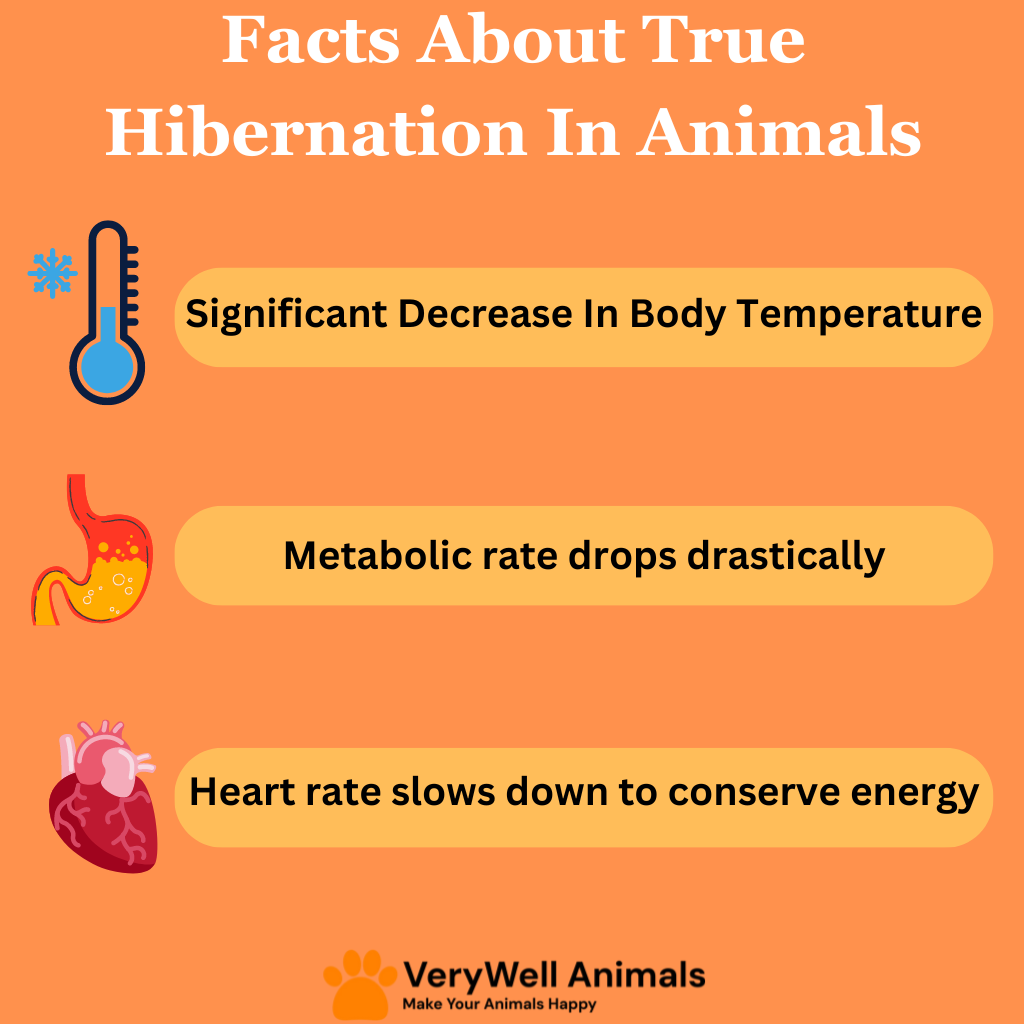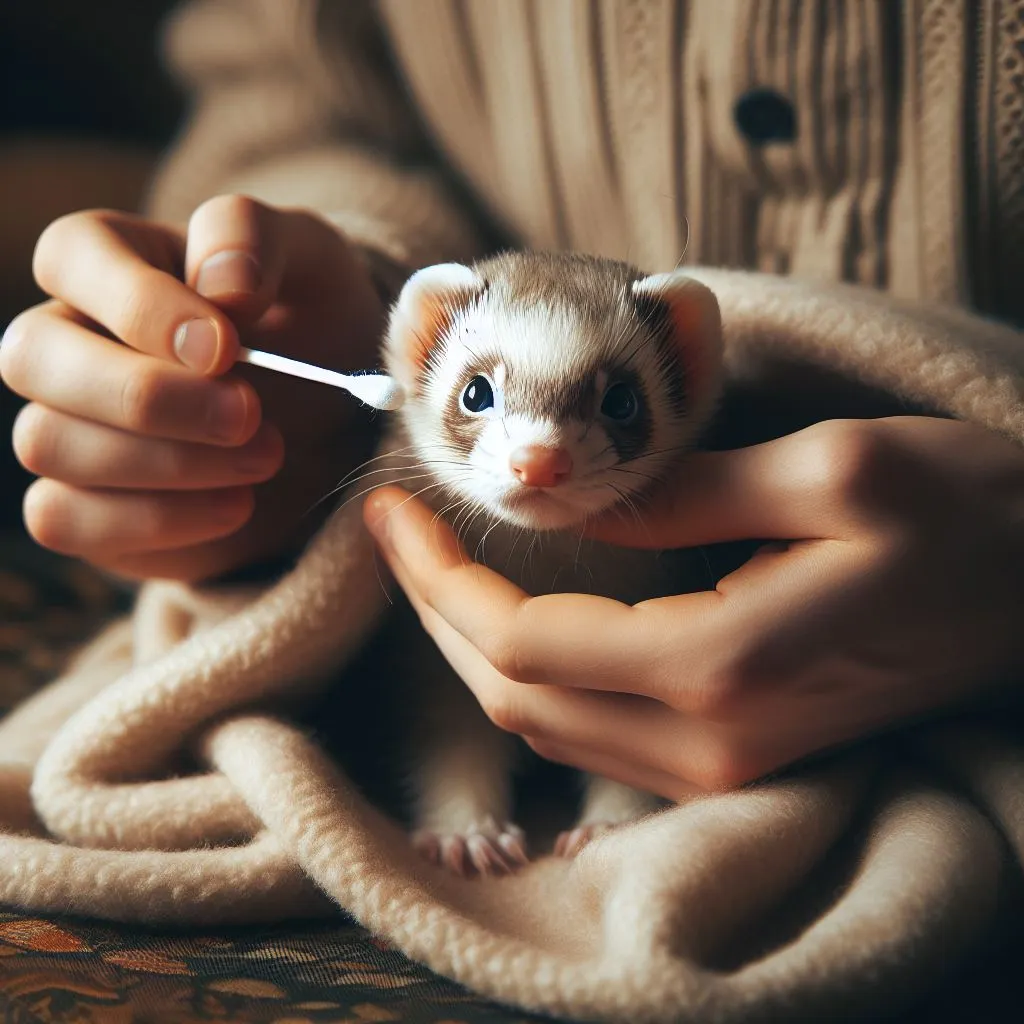Do Ferrets Hibernate? Exploring the Myth

Ferrets do not hibernate. They are active animals that remain awake and alert throughout the year, unlike some other animals that enter a state of hibernation during certain seasons
Ferrets have high energy levels and require regular activity and mental stimulation to stay healthy and happy.
Topics Covered In This Article
- Do Ferrets Hibernate? Exploring the Myth
- Ferret Sleeping Patterns and Dead Sleep
- Why Do Animals Hibernate?
- Differentiating True Hibernation from Torpor in Ferrets
- Winter Behavior and Adaptations in Ferrets
- Signs of Illness vs. Normal Sleep in Ferrets
- Keeping Ferrets Warm During Cold Weather
- Natural Habitat and Behavior of Black-Footed Ferrets
- Closing Thoughts
- Frequently Asked Questions
Do Ferrets Hibernate? Exploring the Myth
Ferrets do not experience true hibernation like some animals. They may show behaviors similar to torpor, a temporary state of decreased activity, but it’s not considered actual hibernation. This means that ferrets do not enter long periods of deep sleep during winter months.
Ferrets have a higher metabolic rate compared to true hibernators. Their bodies need more energy to function properly throughout the year. While they might sleep for extended hours during cold days, it is not the same as the prolonged and deep slumber seen in animals that truly hibernate.
Understanding Torpor-Like Behavior
During colder seasons or when food is scarce, ferrets might exhibit torpor-like behavior by sleeping more than usual. However, this behavior is different from hibernation because their bodies can quickly wake up and become active if needed. It’s like taking long naps on chilly days rather than entering a deep sleep for weeks or months at a time.
Ferrets can quickly adapt to changing environmental conditions. Their metabolism allows them to stay alert and responsive even during restful periods
Why Ferrets Don’t Hibernate
One reason why ferrets do not truly hibernate is their need for regular meals due to their high metabolic rate. Unlike animals that store fat reserves extensively before hibernating, ferrets need consistent access to food to maintain their energy levels.
Moreover, domesticated ferrets have lost the ability to enter full hibernation due to selective breeding over generations. Their bodies have adapted differently compared to wild counterparts who still possess this natural behavior.
Ferret Sleeping Patterns and Dead Sleep
Crepuscular Behavior
Ferrets, like many other animals, are crepuscular creatures. This means they are most active during the periods of dawn and dusk. They have a unique sleeping schedule that aligns with this behavior.
Ferrets tend to experience what is known as “dead sleep,” which is a deep sleep state where they appear immobile and unresponsive to external stimuli. During this period, ferrets may be mistaken for being in a coma due to their lack of responsiveness.
Characteristics of Dead Sleep
When in dead sleep, ferrets enter a state of deep rest that can last for several hours at a time. They do not move much during this phase and might seem completely still. It’s crucial not to disturb them during dead sleep as it is essential for their overall well-being.
Why Do Animals Hibernate?

Animals hibernate to survive when food is scarce. Hibernators enter a deep sleep to skip the tough times, waking up when food is more available. A compound called HIT in their blood signals the need to prepare for hibernation.
Some factors like shorter days and colder weather affect HIT levels, triggering animals to start hibernating. Despite extensive research, scientists are still puzzled about how exactly HIT works.
Differentiating True Hibernation from Torpor in Ferrets
Understanding True Hibernation

True hibernation involves a significant drop in body temperature and metabolic rate. During true hibernation, ferrets experience a deep sleep-like state where their heart rate slows down considerably. This process helps them conserve energy during the winter months when food is scarce.
Exploring Torpor in Ferrets
Torpor, on the other hand, is a temporary state of reduced activity and metabolism that ferrets enter into when resources are limited. Unlike true hibernators, ferrets can easily be awakened from torpor if necessary. This state allows them to conserve energy without entering a full-on hibernation mode.
Key points about torpor:
- Temporary reduction in activity and metabolism
- Easily awakened from this state unlike true hibernators
Winter Behavior and Adaptations in Ferrets
Winter Behavior
Ferrets may become less active during winter due to decreased daylight hours. They might exhibit increased food hoarding behavior as the colder months approach.
Thick fur helps insulate ferrets during lower temperatures, aiding in keeping their body temperature regulated and warm throughout the winter season.
During winters, some ferret owners notice changes in their pets’ behaviors due to these adaptations for surviving the colder months.
Signs of Illness vs. Normal Sleep in Ferrets
Lethargy and Loss of Appetite
Ferrets are energetic creatures, so lethargy or a lack of energy could signal an issue. If your ferret is unusually inactive and shows no interest in playing or eating, it might be sick. Changes in appetite, like refusing treats or food, can also indicate a problem.
Abnormal Sleeping Patterns
While ferrets sleep a lot, sudden changes like excessive sleeping or having trouble falling asleep may point to underlying health concerns. Pay attention if your pet seems to be sleeping more than usual or struggles to rest comfortably.
Monitoring Your Ferret’s Behavior:
- Observe: Watch for any unusual behavior such as decreased activity levels.
- Consult: When in doubt about your ferret’s well-being, seek advice from a vet promptly.
- Track: Keep track of any changes in eating habits and sleeping patterns.
Keeping Ferrets Warm During Cold Weather
Providing Warm Bedding Materials
Ferrets do not hibernate but they can feel the cold, especially during the winter months. To keep them warm and cozy, it’s essential to provide suitable bedding materials like blankets or fleece in their living area. These materials help retain heat and provide comfort for your pet ferret.
Ensuring a draft-free and well-insulated environment is crucial for keeping ferrets warm in colder weather. Drafts can make the temperature drop significantly, causing discomfort to your furry friend. By sealing any drafts and insulating their living space properly, you can create a comfortable environment for your pet.
Using Heating Pads Designed for Small Animals
Consider using heating pads specifically designed for small animals to help regulate your ferret’s body temperature during chilly days. These pads are safe and provide gentle warmth that mimics their natural body heat regulation process. Placing these heating pads under their bedding can offer additional warmth without overheating them.
- Pros:
- Keeps ferrets warm and comfortable.
- Helps prevent health issues related to cold temperatures.
- Cons:
- Overheating may pose risks; monitoring is necessary.
Natural Habitat and Behavior of Black-Footed Ferrets
Nocturnal Behavior
Black-footed ferrets, native to North America, are nocturnal animals. They are most active at night, which means they sleep during the day. This behavior helps them stay warm in their burrows during cold weather.
- Pros:
- Adapted to hunting at night
- Can be more active when temperatures drop
- Cons:
- Limited interaction with humans during the day
Specialized Predators
These ferrets are highly specialized predators that primarily feed on prairie dogs. Relying on these rodents for food is crucial for their survival in the prairie grasslands where they live.
- Pros:
- Efficient hunters due to specialization
- Maintain a balanced ecosystem by controlling rodent populations
- Cons:
- Dependence on prairie dogs can be risky if their population declines drastically
Closing Thoughts
In conclusion, the exploration of whether ferrets hibernate sheds light on their unique behaviors during winter months. Understanding the distinction between true hibernation and torpor in ferrets is crucial for their proper care and well-being. By recognizing signs of illness versus normal sleep patterns, ferret owners can ensure their pets stay healthy and comfortable throughout the colder seasons.
To delve deeper into the world of ferrets and enhance your knowledge of these fascinating creatures, consider researching their natural habitats and behaviors. By observing and learning from their winter adaptations, you can create a nurturing environment that supports your ferret’s needs year-round.
Frequently Asked Questions
Ferrets do not hibernate like some other animals. They have unique sleeping patterns but don’t enter a state of deep hibernation.
Signs of illness in ferrets include lethargy, loss of appetite, and unusual behavior during their usual active periods. Normal sleep involves regular breathing patterns and occasional movements while resting.
True hibernation involves a significant drop in body temperature, heart rate, and metabolism for an extended period. Torpor is a short-term state with reduced activity levels but doesn’t reach the same depth as true hibernation.
Animals such as ferrets display torpor or adjust their behaviors to conserve energy during colder months when food sources may be scarce. This adaptation helps them survive by lowering their metabolic rates temporarily.
During winter, ferrets may increase their sleeping time, seek warm places to rest, and reduce overall activity levels to conserve energy reserves needed for survival during colder weather conditions.
Last Updated on 14 March 2024
Waman Nuka is a seasoned wordsmith and a passionate animal enthusiast with decades of experience in the world of animal care. With a deep love for all creatures great and small, Waman’s journey in the realm of animals started as a young boy exploring the lush forests surrounding his childhood home.




